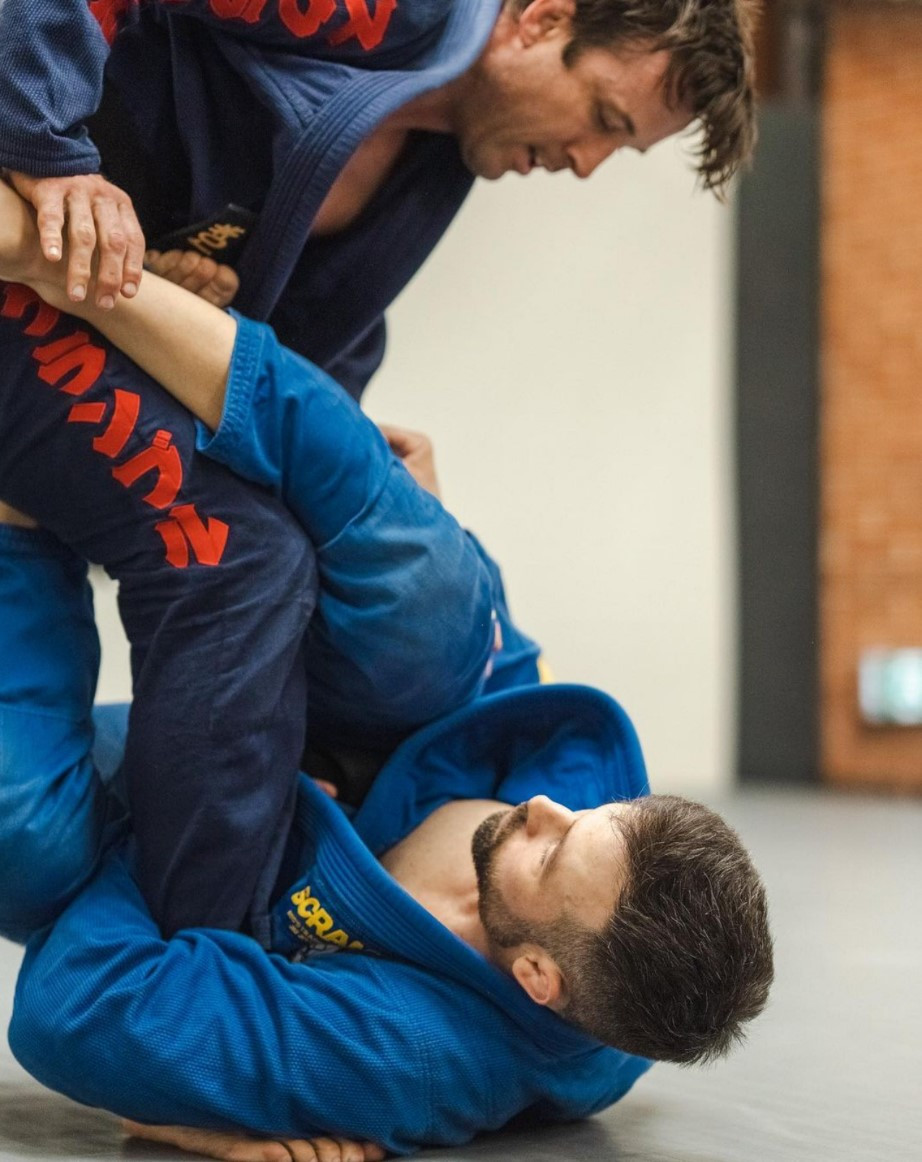Jiu-Jitsu: What to do if you get injured

With any sport, there is a risk of injury. Jiu-jitsu is no different. In most cases, injuries are limited to minor bruises and scratches. On occasion, however, some can be severe enough to keep you from training for more than just the day.
What to Do If You Get Injured

If you do get injured, the first thing you should do is clear the mat. Even if it seems like a minor injury, you do not want to aggravate it. Take a five- to ten-minute breather to allow your adrenaline levels to come down and let your instructor or someone who is qualified to administer first aid assess the situation. Any quality gym will have at least one person onsite who is trained to check you out and let you know if you should take it slow for the day or if you should take the rest of the class off. If this is lacking in your gym, you may want to consider finding a new place to train.
If the injury is more severe, you may have to go see a doctor. If this is the case, let them treat you. Let them tell you what they think is wrong. Doing your own research when you are not a trained medical professional can be dangerous because the body is extremely complex. There are numerous variables that clinicians take into account when they make a diagnosis. If you don’t know all those variables, you may end up treating the wrong condition. This may not necessarily make matters worse, but it won’t fix what’s wrong with your body.
If you don’t think your doctor’s diagnosis is correct, ask for a second opinion. To find another specialist, ask around. Ask people at your gym, talk to friends and neighbors, or go to online forums for athletes in your area.
Once you know what is wrong, learn how to treat it. This includes talking to your doctor, your physical therapist, and people who have gone through the same injury. Others who have dealt with a similar injury will be more than willing to help.
How to Come Back Physically
Even while you’re injured, you can still come to jiu-jitsu class to watch. Watching classes keeps the lessons you’ve learned fresh in your head. However, getting back on the mat too early can agitate the injury and ultimately leave you sidelined for longer than if you just took it easy.
You should also still be exercising, though the extent to which you can exercise depends on your injury. If you hurt your shoulder, you can still do most cardio workouts. If you hurt your ankle, you can still do a lot of exercises while sitting or lying down. This includes stretches to keep yourself limber, not just weight training to keep yourself strong. It’s a lot easier to maintain a routine than to start anew.
As you get healthier, you can start to step it up. Coach Firas Zahabi from Tristar Gym in Montreal recommends an incremental approach when you come back to jiu-jitsu class in the above video. If you haven’t been coming since the injury, start by watching a class or two. Move up to doing techniques. After some a few classes, ask to roll lightly with someone whom you trust and ramp up over the course of a few weeks. If you start going hard immediately, there’s a good chance you’ll reinjure yourself and have to start the healing process all over again.
How to Come Back Mentally
A lot of people struggle to come back after an injury not because of the severity of the injury or because they keep reinjuring themselves, but for purely psychological reasons.
The most common one is because they lose momentum. They stop coming to class, their routines change, and soon they forget what brought them to jiu-jitsu in the first place. This is yet another important reason to keep coming to class just to watch if you’re injured.
The other danger is that you may start to second-guess yourself. It may start small. It may start as additional caution when doing a move. Then you may not do the move at all. Eventually, you may find yourself doubting things that you once did without any problem.
In the above video, Firas tells a story about a similar thing that happened to him after a very bad experience on a plane coming back from Japan. To this day, he still doesn’t like flying because of it. However, shortly after the experience, he started to notice that he got anxiety whenever he had to cross bridges. This was new. He had never had a problem crossing bridges before, but he quickly realized that the experience of flying had made him afraid of heights and that crossing bridges was just one manifestation of this new fear. If he did nothing about it, he reasoned, the fear would continue to grow. He might soon find himself having difficulty getting in elevators.
To overcome this fear, Firas started going out of his way to make sure he took a bridge whenever he went anywhere. He faced his fear, he overcame it, and now he crosses bridges without a second thought.
The point of this story is that ignoring a problem usually causes it to get worse. In terms of jiu-jitsu, this means you may start avoiding and stressing out about doing one move, and then any moves that involve certain techniques. Eventually, this may lead to you stressing out and avoiding jiu-jitsu class entirely.
To stay motivated and to keep yourself from developing anxiety about coming to class, it’s important to keep Firas’ advice in mind. Keep coming to class, allow yourself time to fully recover, and take it slow until you’re ready to roll at full strength again.

